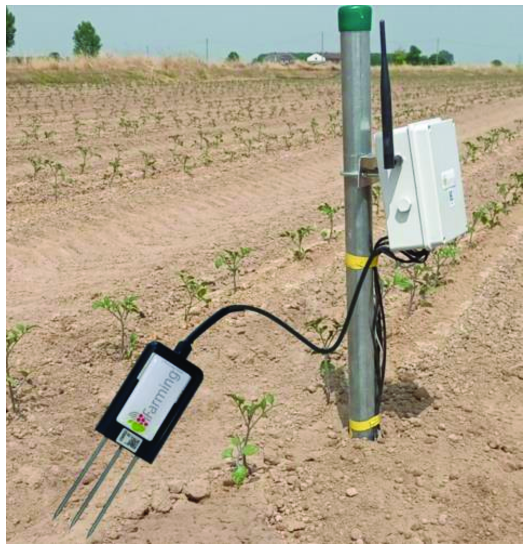Avoiding Common Summer Farming Mistakes: A Farmer’s Guide
March 6, 2025Avoiding Common
Summer Farming Mistakes: A Farmer’s Guide
Summer is a challenging season for
farmers, bringing intense heat, water shortages, pest outbreaks, and soil
degradation. While summer farming offers opportunities for good crop yields, common
mistakes can lead to crop failure, reduced productivity, and financial
losses.
To ensure a successful harvest,
farmers must be aware of these pitfalls and adopt smart strategies to
mitigate risks. This guide explores the most common summer farming mistakes and
how to avoid them for a productive and stress-free growing season.
1. Overwatering
or Underwatering Crops
Mistake: Many farmers either overwater, leading
to root rot and nutrient leaching, or underwater, causing dehydration
and heat stress in plants.
How to Avoid It:
✅ Use drip irrigation to provide slow
and steady water directly to plant roots.
✅
Water crops early in the morning or late in the evening to reduce
evaporation.
✅
Install soil moisture sensors to monitor water levels and adjust
irrigation accordingly.
✅
Apply mulch to retain soil moisture and prevent excessive drying.
2. Ignoring Soil
Health
Mistake: High summer temperatures can deplete soil
nutrients, making it harder for plants to absorb essential minerals. Many
farmers fail to replenish soil nutrients, leading to weak crops and poor
yields.
How to Avoid It:
✅ Conduct soil testing before planting
to determine nutrient deficiencies.
✅
Use organic compost or manure to improve soil structure and moisture
retention.
✅
Practice crop rotation to prevent nutrient depletion and soil-borne
diseases.
✅
Avoid excessive tilling, which can dry out the soil and increase erosion.
3. Choosing the
Wrong Crops for Summer
Mistake: Planting non-heat-tolerant crops
during summer leads to poor growth, increased stress, and lower productivity.
How to Avoid It:
✅ Choose heat-resistant crops such as:
- Vegetables: Okra, tomatoes, eggplant, cucumber, and
chilies.
- Fruits: Watermelon, muskmelon, mango, and papaya.
- Grains: Sorghum, millet, and maize.
✅ Select drought-resistant varieties suited to your region’s climate.
✅ Use shade nets to protect sensitive crops from extreme heat.
4. Neglecting
Pest and Disease Management
Mistake: Warm weather creates ideal conditions
for pest infestations and fungal diseases. Ignoring pest control early in the
season can lead to severe crop damage.
How to Avoid It:
✅ Regularly inspect plants for early signs
of pests and diseases.
✅
Use companion planting (e.g., marigolds to repel aphids).
✅
Apply organic pest control like neem oil or insecticidal soap.
✅
Rotate crops to break pest life cycles and prevent outbreaks.
✅
Encourage natural predators like ladybugs and birds to control harmful
insects.
5. Poor Weed
Management
Mistake: Weeds grow aggressively in summer and compete
with crops for water, nutrients, and sunlight. Many farmers do not control
weeds until they become a major problem.
How to Avoid It:
✅ Use mulching to suppress weed growth.
✅
Remove weeds early and regularly to prevent them from spreading.
✅
Practice no-till farming to reduce soil disturbance and weed emergence.
✅
Consider cover crops to prevent weed establishment.
6. Overlooking
Livestock Care in Extreme Heat
Mistake: Many farmers forget that livestock also
suffer from heat stress, leading to dehydration, reduced milk production,
and poor weight gain.
How to Avoid It:
✅ Provide plenty of fresh, clean water
throughout the day.
✅
Ensure livestock have adequate shade and ventilation.
✅
Feed animals during the coolest parts of the day to prevent heat
exhaustion.
✅
Monitor for signs of heat stress such as panting, lethargy, and reduced
appetite.
7. Failing to
Store Water Efficiently
Mistake: Not collecting and storing rainwater or
irrigation water properly can lead to shortages during dry periods.
How to Avoid It:
✅ Build rainwater harvesting systems
like farm ponds or storage tanks.
✅
Use drip irrigation to reduce water wastage.
✅
Maintain irrigation channels to prevent leaks and evaporation losses.
✅
Apply water conservation techniques, such as cover cropping and
deep-rooted plants.
8. Not Adjusting
to Climate Change
Mistake: Many farmers continue to use traditional
farming methods without adapting to changing weather patterns, leading
to crop failures and reduced yields.
How to Avoid It:
✅ Use weather forecasting tools to plan
planting and irrigation schedules.
✅
Invest in climate-resilient crops and technology like drought-resistant
seeds.
✅
Implement sustainable farming practices such as agroforestry and organic
farming.
✅
Reduce reliance on chemical fertilizers and pesticides, which can
degrade soil health over time.
9. Lack of Market
Planning
Mistake: Some farmers focus only on production
and do not plan how or where to sell their crops, leading to losses due
to price fluctuations.
How to Avoid It:
✅ Research market demand before planting
crops.
✅
Diversify crops to reduce the risk of price drops.
✅
Establish direct links with wholesale buyers or farmers’ markets.
✅
Explore online platforms to sell produce directly to consumers.
10. Ignoring Farm
Equipment Maintenance
Mistake: The heat and dust of summer can cause farm
equipment like tractors, irrigation systems, and harvesters to break
down if not properly maintained.
How to Avoid It:
✅ Regularly check and clean irrigation
systems to prevent blockages.
✅
Service tractors and other machinery before peak farming season.
✅
Store equipment in shaded areas to prevent overheating.
✅
Keep extra spare parts for quick repairs during emergencies.
Conclusion:
Farming Smarter This Summer
Summer farming comes with unique
challenges, but by avoiding these common mistakes, farmers can increase
yields, conserve resources, and ensure a successful harvest. The key to thriving
in summer agriculture is planning ahead, using water wisely, maintaining
soil health, and protecting crops and livestock from extreme heat.
By adopting smart, sustainable
practices, farmers can not only survive the summer but turn it into a
season of productivity and profitability.
At krishibazaar.in, you
can find and buy various agricultural products. For agricultural guidance on
selecting the most suitable products for your crops, please contact or WhatsApp
at +917887880887






Guest reviews
No reviews found for this Blog